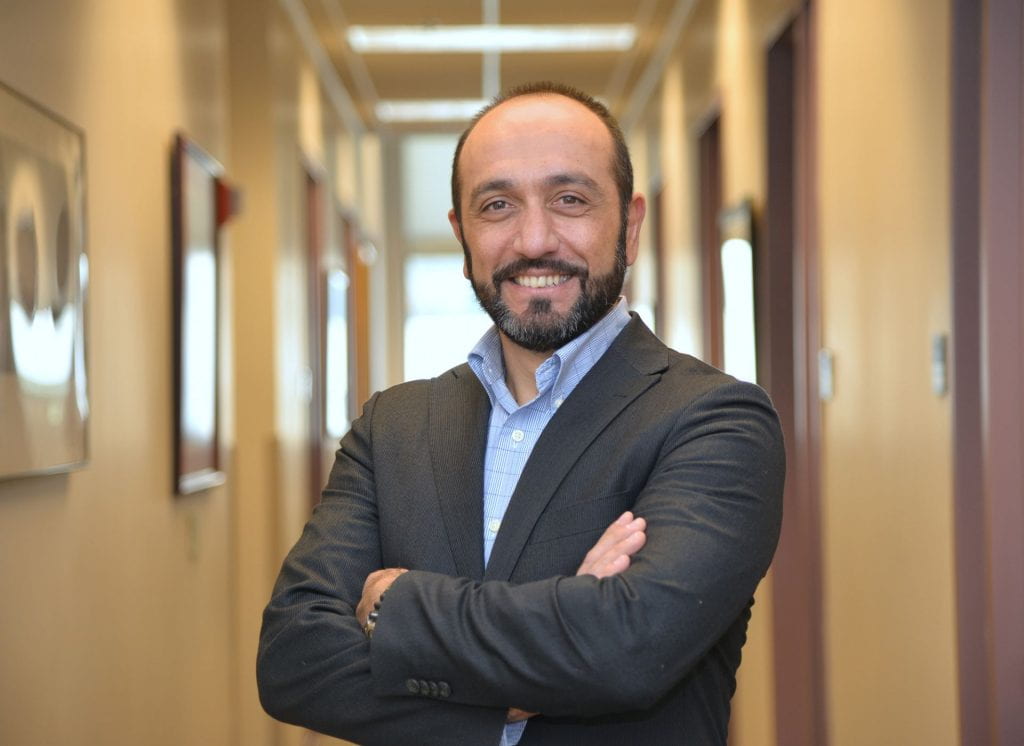
Professor of Management Nezih Altay still remembers the pivotal event 20 years ago that led him to focus his expertise on humanitarian supply chain.
It was Aug. 17, 1999, five days before he was supposed to marry his fiancée, Ozge Guney, in Turkey’s capital of Istanbul. Altay and Ozge had traveled to their home country to celebrate their wedding with family. At 3 a.m., he began to feel the ground shaking. In less than a minute, a 7.2-magnitude earthquake hit just outside of Istanbul, killing more than 17,000 people.
Altay and his family managed to escape to a nearby park, where they waited for shelter and relief. It took the government three days to assemble an emergency management operations center. “It was a game-changing event,” Altay says. The earthquake, which left thousands of locals without homes, led Altay to learn more about the supply chain of disaster management.
Today, Altay is lauded for being one of the first U.S. academics to recognize the importance of applying supply chain theory and research to disaster relief. He has been named a Fulbright Scholar and will research the logistics of aid delivery in conflict zones for six months next year as the visiting Fulbright-Hanken Distinguished Chair in Business and Economics at the Hanken School of Economics in Helsinki, Finland. In 2019, the American Logistics Aid Network, an association that provides supply chain assistance to disaster relief organizations, recognized Altay’s work with its first Research and Academic Contributions Award.
Supply chain management typically refers to the flows of goods and services in private businesses. However, Altay says the only difference between supply chains in the business sector and the humanitarian sector is what he calls the objective function.
“The objective function in the corporate world is to minimize cost,” he explains. “It could be to maximize revenue as well. In humanitarian supply chains, the goal is to minimize human suffering or minimize response time. Usually, you cannot minimize response time and cost at the same time. It’s very hard.”
After returning from Turkey, Altay and his wife attempted to resume their lives as PhD students at Texas A&M University. Bothered by the Turkish government’s lack of response to the earthquake, they raised $15,000 in disaster aid funds and sent it to several nonprofit organizations. Altay also began reading about disaster relief management while completing his dissertation.
“I thought, as a PhD student in operations management, there must be a better way of dealing with these events,” he says. “Because ultimately, disaster operations is a process.”
In humanitarian supply chains, the goal is to minimize human suffering or minimize response time. Usually, you cannot minimize response time and cost at the same time. It’s very hard.”
— Nezih Altay, professor of management
After completing his dissertation, Altay began teaching at the University of Richmond, in Virginia’s capital. To get a better understanding of disaster relief management, he attended workshops organized by the Federal Emergency Management Agency and met the former director of emergency management for Virginia, Walter G. Green. Altay and Green eventually co-authored a 2006 paper that assessed the literature in disaster relief and supply chain, which triggered academics’ interest in the topic. Researchers also began to notice the importance of humanitarian supply chains as more catastrophic events, such as Hurricane Katrina, took place. Altay’s paper became one of the most cited in its field.
At DePaul, Altay’s research helped create the graduate course Humanitarian Supply Chains. The course is offered as an elective to DePaul business students and is a core course in the Refugee and Forced Migration Studies master’s program in DePaul’s College of Liberal Arts and Social Sciences.
While supply chain students may want to work for private organizations, Altay says the humanitarian and business sectors have a lot in common. Given current issues that may influence supply chains, including pandemics, climate change and international political tensions, operations management, like a humanitarian supply chain, no longer follows a predictable pattern.
“We’ve learned new things in humanitarian supply chain research, and now we’re applying those lessons to commercial supply chain research,” Altay says. “So it’s come full circle.”
Altay continues to delve into unique aspects of supply chains and humanitarian issues. He is currently working on an academic paper that examines the relationship between companies’ stock value and reports of those companies’ allegedly engaging in human trafficking. Another research paper he is proud of examines information hubs in the humanitarian community. He presented this paper at a conference organized by the United Nations Office for the Coordination of Humanitarian Affairs.
“After I presented my research, a couple of people from the World Food Program (a humanitarian organization that addresses famine and hunger worldwide) came and told me, ‘This is what we’re looking for,’” Altay says. “That’s why I feel that my research has made an impact—people care about it and are using it.”
Learn more about Nezih Altay by viewing this DePaul Distinctions video.
By Jaclyn Lansbery | Photo by Kathy Hillegonds
